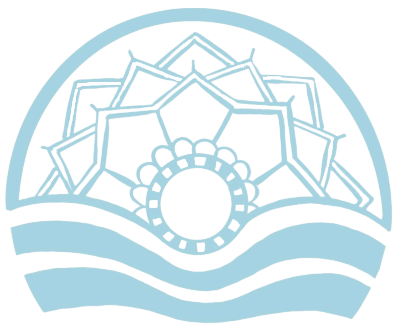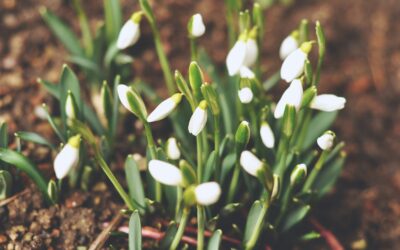It Takes Time to Build Resilience…
Amble WellBeing
Amberly Kelley-Dotson, E-RYT
Holistic Coach
& Self-Care Sage
Amberly employs her diverse expertise to foster a harmonious connection between the body and mind. Drawing on a range of techniques including therapeutic yoga, Ayurveda, holistic coaching, and recreation therapy, she endeavors to enhance the well-being of individuals—enabling them to experience a profound sense of improvement in their bodies, minds, and hearts, ultimately fostering a deeper connection with themselves.

Providing organic movements…
For a Variety of Conditions
Find balance through movement, breath, and self-discovery—guided by Ayurvedic wisdom tailored to your unique journey.
Foot rehabilitation such as bunions, fallen arches, ankle instability
Lower or upper body pain patterns (neck, shoulders, knees, hips, etc.)
Slowing down thoughts, movement, and building awareness
Build sustainable and practical practices to fit your life
Reconnecting to your body after injury, illness, trauma, etc.
Hypermobility
Prenatal and postnatal
Managing stress & anxiety
Breath Work
Low back pain
SI joint dysfunction
Reduce digestive issues like bloating, gas, constipation, etc
Where to amble on…
Upcoming Workshops, Events
& Collaborations
let’s learn from one another
One Thoughtful Email at a Time – No SPAM, I pinky promise!
helping your mind feel heard. so your body can feel seen. So you can find comfort.
Have Questions About My Sessions or Offerings? Great, FAQs Below!
What can I expect at the first session?
Prior to your first session, you will fill out an intake form that will provide me with some information about what your needs are. We’ll discuss what you’ve filled out and I’ll ask additional follow-up questions before moving on to a movement assessment. As we move, I’ll continue asking questions, directing your attention to specific places, and gathering additional information. You’ll leave with some practical homework to practice until we meet again!
What are the next steps after a session?
After your first session, you'll be given some 'homework' that might include anything from food, herb, or lifestyle recommendations.
Homework will always be practical for your life and schedule and can be changed and refined over time in follow up sessions.
Follow up sessions will take place more frequently when we first start working together, with an option to space them out over time.
What if I don't live in Knoxville?
That’s ok! I have virtual clients who live in various cities. Please contact me about setting up a virtual session.
How much do sessions cost?
The intake session and 90 minute sessions are offered on a sliding scale of $130-$150 while 60 minute follow up sessions are offered on a sliding scale of $90-$110.
What is a sliding scale?
A sliding scale is a tool of creating accessibility for people based on their individual circumstances and “represents the idea that financial resources, including income, are not and should not be the only determining factor in whether or not someone can access services/care/etc."
To learn more, I encourage you to read this article or reference the infographic below for help discovering where you fall on the sliding scale.

What can I expect in follow up sessions?
During follow up sessions, we will begin by checking in about how you’re feeling on that day. We will revisit your practice from previous sessions and make the appropriate adjustments for your needs. After each session, I will send you home with a copy of the practice we did together for you to refer to and revisit at home, along with any additional ‘homework.’ Each time we meet, we will refine your practice as your needs shift.
What should I wear?
Wear something comfortable that you can easily move in. You don’t have to dress up for me 🙂
What should I bring with me?
I have all the supplies that you’ll need during your session, but you are always welcome to bring any of your own supplies that you want.
How long do sessions last?
Initial intake sessions last between 90-105 minutes while follow up sessions last 60-75 minutes.

This is for you if you’re…
– Interested in taking steps toward prioritizing self-care
– Interested in education and subtle practices
– Seeking Preventative and sustainable solutions
– Seeking balance and ways to better practice self care
– looking to Relieve stress/anxiety
– looking for holistic approaches for wellbeing

love is love is love is love
Everyone–lesbian, gay, bi, trans, gender non-conforming, non-binary and all other LGBTQIA+ folks are welcome here.
these terms have many meanings
So Here’s Some Terms Defined by My Offerings & Practice
Amble
To move slowly at a sustainable pace.
Yoga
Yoga is a sanskrit term that means “to yoke.” The word yoke is not one that we see often used in the English language, as we don’t tend to use them much these days. A yoke is a wooden beam used between a pair of oxen (or other animal) that allows them to work together to pull a heavy load. When we think about what we are doing in a yoga practice, we are yoking together our bodies, breath, minds, etc. to work together in harmony to lighten our load.
Viniyoga
Viniyoga comes from the teachings of T. Kriṣṇamācārya and was carried forward through is son, TKV Deśikācar. Gary Kraftsow, long time student of both Deśikācar’s and Kriṣṇamācārya’s, founded the American Viniyoga Institute in 1999, and is a renowned educator in the lineage of Viniyoga teaching and therapy. AVI defines Viniyoga as:
Appropriate application of the tools of yoga
Viniyoga is a comprehensive and authentic transmission of the teachings of yoga including āsana, prāṇāyāma, bandha, sound, chanting, meditation, personal ritual and study of texts. Viniyoga (prefixes vi and ni plus yoga) is an ancient Sanskrit term that implies differentiation, adaptation, and appropriate application.
The American Viniyoga Institute uses the term Viniyoga to refer to an approach to yoga that adapts the various means and methods of practice to the unique condition, needs and interests of each individual – giving each practitioner the tools to individualize and actualize the process of self-discovery and personal transformation.
The practices of yoga provide the means to bring out the best in each practitioner. This requires an understanding of a person’s present condition, personal potential, appropriate goals and the means available. Just as every person is different, these aspects will vary with each individual.
To learn more about individualized Viniyoga sessions with me, click here.
Ayurveda
Ayur (meaning life) Veda (meaning science/knowledge) is an ancient practice of healthcare originating in India that grew side by side with yoga. It is individualized and takes into account your unique constitution and condition physically, mentally, and emotionally. Imbalances are viewed through the doṣa-s, elements (fire, water, earth, air, and either), and their qualities (such as heavy/light, hot/cold, etc.). Through gaining a deeper understanding of the world around us and our unique constitution, we can use all of the above to help find balance within our bodies, minds, and emotions.
Wellness
We see the word wellness thrown around a lot without much meaning. To me, this word applies to our whole selves. It is holistic well-being: feeling comfortable in our bodies, calm in our breath, regulated in our nervous systems, and stable in our minds.
Yoga Therapy
The American Viniyoga Institute (https://viniyoga.com/) defines yoga therapy as “the adaptation and application of yoga techniques and practices to help individuals facing health challenges at any level manage their condition. The long-term goals include reducing the symptoms of suffering that can be reduced, managing the symptoms that cannot be reduced, rooting out causes wherever possible, improving life function, and shifting attitude and perspective in relationship to life’s challenges.”
Breathwork
Broken into two definitions, depending on the intention:
- Solve unhelpful breathing habits such as holding your breath, shallow breathing, etc.
- Developing specific breathing practices to support your mind and nervous system
Utilizing different breathing techniques such as following a ratio or restricting the flow of breath from a nostril to create differing effects.
In our practice, will be done after breath-centric movement that has helped your system prepare for a breathing practice.
Meditation
The practice of meditation is about creating a conscious relationship with your mind. There is a common misconception that to meditate you must make your mind be fully emptied or still, and that’s not true! Meditation is about building awareness around thought patterns and your ability to sustain attention. It is about connecting thoughts, emotions, and behavior through self-inquiry. In our practice, meditation will be done after breath-centric movement and a breathing practice as they help your system prepare.
Trauma Informed
Consent and safety are top priorities of mine. You are always in control of your practice. You know what is happening in your body/mind/etc. More than I do, so I am here to support you and offer practices, rather than be dogmatic and tell you what to do. We will approach all practices at the most appropriate pace for your body, mind, and nervous system.
Anxiety & Stress Relief
Many times when we are dealing with anxiety, our minds are racing but our bodies feel lethargic. We can use mulitple facets of our practice to help bring ourselves into balance in the moment, and, with practice have a cumulative effect of sustained balance
Āsana
A sanskrit term meaning postures, movement, physical practice.
Prāṇāyāma
A sanskrit term meaning breathwork, breathing techniques (see breathwork)
if you have the time…
I Hope We Can Learn From One Another
What Does Being Trauma-Informed Mean?
There’s a lot of talk about trauma and what being trauma informed means these days. In many ways, this is great–we’re all finally talking about this stuff that has HUGE impacts on us, but in other ways it gets used so frequently, that it’s lost meaning. So many...
Sludgy Spring? It’s Kapha Season Baby!
Hey there! Are you waking up with phlegm in your throat? Sneezing a bit more? Noticing some extra sleep in your eyes? Having some stagnation issues? Having a hard time getting going in the morning? Don’t worry—it’s just increased Kapha because honey we are in her...
Oil is Love + Love is Oil
Have you been feeling a little fried lately? Noticing dry skin, dry hair, dry nasal passages? Are you feeling anxious and experiencing racing thoughts? Are you clenching your jaw and noticing increased jaw, tension, and neck tension? I know it might sound a little...








